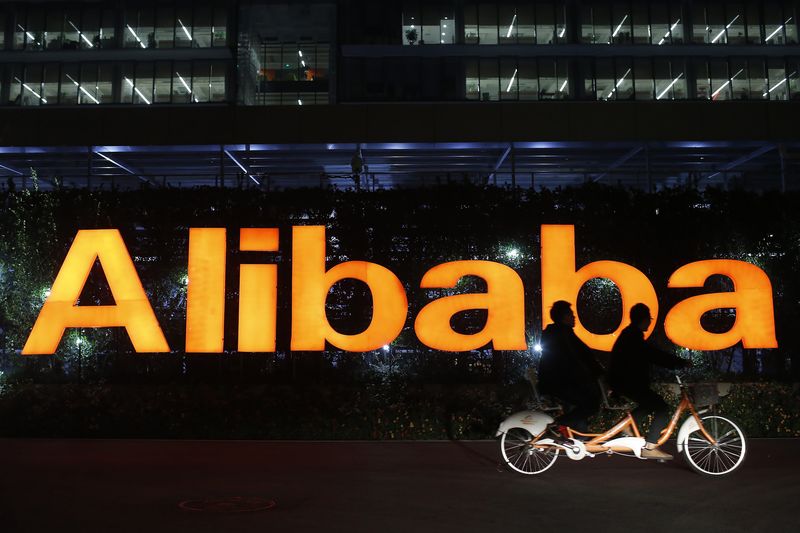The Financial Associated Press (Shanghai, editor Zhou Xinyang), Alibaba (HK:) (NYSE:) on Thursday (December 2) intraday stock price hit a new low in more than a year-120.1 Hong Kong dollars. However, international investment banks do not seem to worry about its long-term development. According to Bloomberg data, the latest median target price of international investment banks for Alibaba is HK$206.3. The target price is about 68.17% higher than the transaction price of HK$122.49 as of press time, and there is a lot of room for potential upside.
Among them, Goldman Sachs released a report saying that it had recently conducted an NDR (Non-Deal Roadshow) with Alibaba’s head of investor relations and analyzed the future development of Alibaba’s three strategic pillars (domestic consumption, cloud computing, and globalization). In general, Goldman Sachs remains optimistic about the progress of Alibaba’s new business realization and performance improvement. Alibaba’s latest target price is HK$209, which is more than 70% higher than the current price. However, Alibaba’s stock rating is changed from “Buy Belief” (Equivalent to a strong recommendation) Downgrade to “Buy”.
Goldman Sachs reported that Alibaba believes that the short-term growth of GMV (total e-commerce retail sales) in the Mainland will slow down. Due to the impact of the weakening of macroeconomic and retail growth, the growth of online physical goods retail sales in the Mainland will slow down in Q3 2021. To 8.7%, China’s overall apparel fell by 1.5% year-on-year, but cosmetics retail sales rose by 2.2%. Due to Alibaba’s huge base in the field of consumer discretionary goods, this trend has a significant impact on the company’s performance.
Ali revealed that it took two merchant-friendly measures in the last fiscal quarter, which resulted in the core business customer management revenue (CMR) growth being lower than the total retail trade volume (GMV), including: exempting merchants from basic technical fees and the company giving up Billions of renminbi in revenue; the second item is merchant subsidies, which the management regards as Alibaba’s provision of temporary expenditures to merchants during the period of macro slowdown and increased competition.
Regarding key strategic investments such as Taobao special edition and community e-commerce, Alibaba said that it has seen broad market opportunities in remote cities. The Taobao special edition mainly caters to the market in remote cities. In fiscal year 2022, the number of annual active consumers (AACs) in Q2 reached 240 million. Alibaba’s management stated that increasing and retaining users is the focus of the Taobao special edition. Early stage.
As for the community e-commerce platform “Taocaicai”, the company said that the GMV of Taocaicai increased by 150% quarter-on-quarter in the last fiscal quarter. The company operates under the asset-light retail model and requires limited capital expenditure. However, according to management, Taocaicai is still at a loss due to fierce competition in the industry.
A recent report by Goldman Sachs analyzed that in the context of slowing retail consumption and fierce competition, Alibaba has been increasing investment to acquire new users, create multiple sources of traffic, and increase the amount of merchant subsidies in the short term.
Goldman Sachs predicts that Ali’s revenue will fall by 3%, 4%, and 5% in fiscal year 2022 to 2024, respectively. Due to low operating leverage and slower revenue growth, Goldman Sachs will reduce Ali’s adjusted EBITA from fiscal year 2022 to 2024 by 19% and 18%. And 17%, and cut the non-international accounting standards earnings per share by 14%, 18% and 18%, and lower the target price of H shares from 245 yuan to 209 yuan. At the same time, Goldman Sachs still expects Alibaba to continue to “actively repurchase.”
Fusion MediaOr anything withFusion MediaThe person concerned does not accept any liability for loss or damage caused by relying on the data, quotations, charts and buy/sell signals contained in this website. Please fully understand the risks and costs associated with financial market transactions. This is one of the most risky forms of investment. The English version of this agreement is the main version. If there is a discrepancy between the English version and the Chinese version, the English version shall prevail.
